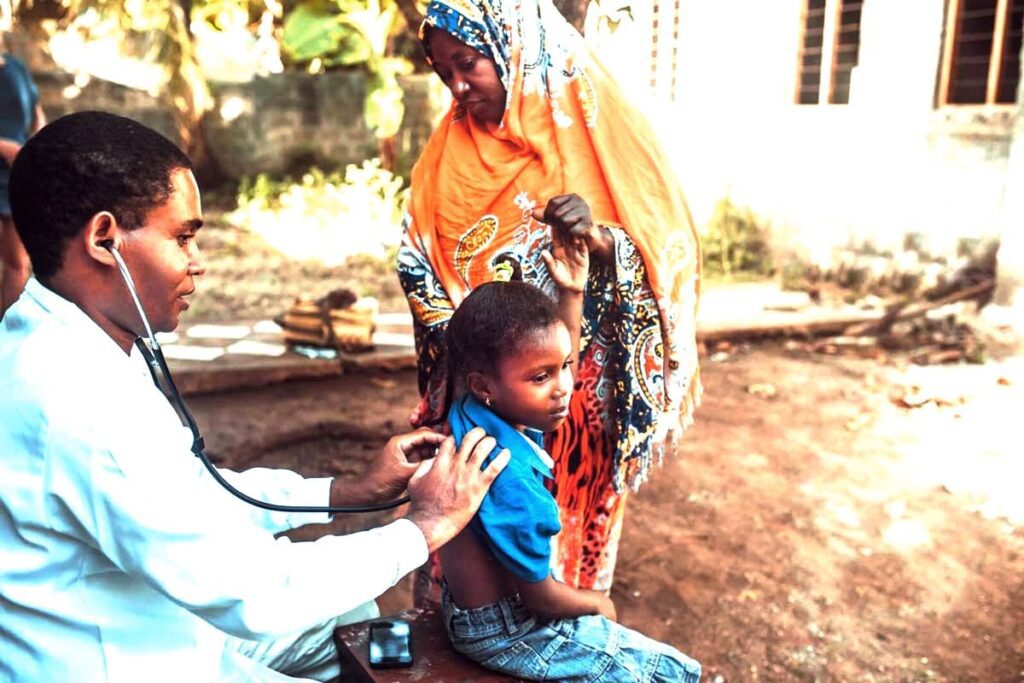Gavi has announced a funding initiative of $23.4 million aimed at supporting immunization services for children in Sudan. This funding is directed toward addressing the critical health challenges posed by ongoing conflict, which has disrupted access to routine healthcare services. Sudan hosts one of the world’s largest displaced populations, and the collaboration between Gavi, Save the Children, and UNICEF is a vital step toward ensuring that vulnerable children receive life-saving vaccines.

The funding will be distributed through grants to UNICEF and Save the Children, with a focus on maintaining routine immunization. A key strategy is the involvement of local organizations to access remote and hard-to-reach areas. This initiative is critical in light of the devastating impact of conflict, which has rendered over 70% of health facilities in affected areas non-operational, leaving more than 3 million children unprotected against vaccine-preventable diseases.
Since the conflict began in April 2023, vaccination coverage has plummeted, exposing millions of children to heightened risks of diseases like measles, malaria, pneumonia, diarrheal illnesses, cholera, and others. The initiative will reinforce the country’s National Emergency Immunization Plan, focusing on increasing access to vaccines and building resilient health systems to tackle ongoing challenges.
Gavi’s funding includes measures to strengthen vaccine storage and distribution, with improved cold chain systems and additional training for healthcare workers. These efforts are designed to enhance outbreak detection and response, ensuring that children in even the most remote areas are reached. This latest initiative brings Gavi’s total funding for Sudan to $112 million across 2023 and 2024, highlighting its commitment to improving child health during one of the country’s most challenging times.
Dr. Sania Nishtar, CEO of Gavi, the Vaccine Alliance, emphasized the importance of prioritizing immunization in conflict zones, stating that access to vaccines is a right that should not depend on one’s circumstances of birth. She praised the resilience of Sudan’s healthcare workers, whose dedication continues to bring hope for a brighter future for children in the country.
UNICEF will utilize $11.2 million of the funding to implement vaccination campaigns in accessible states, working alongside the Federal Ministry of Health. These campaigns will include outreach and mobile vaccination programs designed to reach vulnerable populations. Sheldon Yett, UNICEF Representative for Sudan, highlighted the importance of this partnership in strengthening immunization programs and protecting children in the face of disrupted health services.
Save the Children Sudan will receive $12.2 million to focus on immunization efforts in hard-to-reach areas. Collaborating with organizations like the International Medical Corps and Alight Sudan, Save the Children aims to address the alarming decline in vaccination rates. Their efforts will target underserved regions such as Kordofan and Darfur states, ensuring that children in these areas are not left behind.
Sudan’s healthcare system has been significantly strained, with around 8 million people displaced and routine immunization services severely impacted. Coverage for critical vaccines, such as the diphtheria, tetanus, and pertussis-containing vaccine (DTP3), has dropped from 93% in 2022 to just 59% by November 2023. The ongoing humanitarian crisis has been exacerbated by outbreaks of cholera, malaria, dengue fever, measles, rubella, and vaccine-derived poliovirus.
Despite these challenges, Sudan’s Ministry of Health, Gavi, UNICEF, Save the Children, and other partners have continued to push forward with immunization campaigns. Recent efforts include the introduction of a malaria vaccine into routine immunization, measles and rubella vaccination drives, and cholera vaccination campaigns. These initiatives demonstrate the collective commitment to protecting children’s health in the most difficult circumstances.
The Federal Minister of Health, Dr. Haitham Mohamed Ibrahim, expressed gratitude for Gavi’s flexibility and commitment, highlighting the importance of ensuring that immunization services continue, even during crises. He praised the extraordinary efforts of Sudan’s health workforce, whose dedication has been instrumental in delivering life-saving vaccines to children across the country.
Gavi, the Vaccine Alliance, has been a transformative force in global health since its inception in 2000. The organization has helped vaccinate over 1.1 billion children and prevented more than 18.8 million deaths. Its mission focuses on reaching “zero-dose” children—those who have not received any vaccines—using innovative technologies and partnerships to strengthen health systems worldwide.
Save the Children, active in Sudan since 1983, has been a critical partner in addressing the needs of vulnerable children and families. In 2023 alone, the organization supported over 2.4 million people in Sudan with integrated health, nutrition, education, and emergency response programs. Their ongoing collaboration with Gavi and UNICEF underscores the importance of collective action in addressing the country’s immunization challenges.
This initiative represents a beacon of hope for Sudan’s children, offering a chance to rebuild and strengthen the healthcare infrastructure needed to secure a healthier future.
